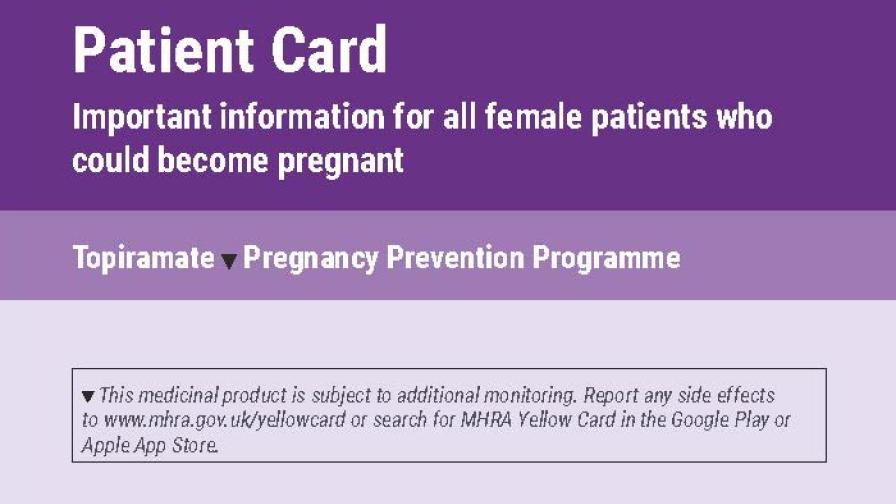New safety measures for topiramate during pregnancy
New safety measures have been introduced for the epilepsy medication, topiramate, also known by the brand name Topamax and other generic names.
The strengthened safety measures follow a major safety review triggered by a European study which showed that children born to mothers who take topiramate during pregnancy face a two to three times higher risk of intellectual disabilities, autism spectrum disorders and attention deficit hyperactivity disorder.
Following recommendations by the Commission on Human Medicines, the MHRA – the medicines and healthcare regulator – is advising that topiramate should no longer be prescribed for epilepsy during pregnancy unless there is no suitable alternative treatment. Any woman or girl of childbearing age taking the medication will need to be using effective birth control during treatment and will need to take a pregnancy test before starting treatment.
Healthcare professionals should discuss the risks associated with the medication with patients and ensure that a risk awareness form is signed.
Patients are also advised that some birth control methods are less effective than others when using topiramate, and their GP or sexual healthcare practitioner will be able to help advise which form of birth control is right for them.
Regular medication reviews, at least once annually, are also recommended. New safety and educational materials have been introduced for patients and healthcare professionals to support the implementation of these measures.
Prior to the start of the review, topiramate was already known to have risks associated with significant harm during pregnancy, including a higher risk of birth defects and low birth weight. For this reason, patients were previously advised against using it during pregnancy and to use highly effective contraception during treatment.
The introduction of the Pregnancy Prevention Programme will further strengthen the safety measures and aim to reduce the number of topiramate-exposed pregnancies.
Pregnant women or those planning to become pregnant, who are currently take topiramate for epilepsy, should not stop taking the medication but should seek the advice of a specialist. Stopping medication without supervision may cause their seizures to start again, happen more often or last longer. Anyone planning to start a family should make an appointment with their GP to discuss their treatment options.
Topiramate is taken to prevent migraines or for the management of epilepsy and is thought to be prescribed to just over 30,000 female patients under the age of 55 in England in one month, according to the latest data from NHS England.
Topiramate should already not be used during pregnancy for migraine because of the known link with an increased risk of birth defects.
In 2021 the CHM said that, of the antiepileptic medicines reviewed for use in pregnancy, lamotrigine and levetiracetam are considered safer, since they were not associated with birth defects if used in pregnancy.
A visual warning symbol will be added to the box of all topiramate medicines. This ‘no’ symbol will show a pregnant woman in a red circle with a line through it. This will be accompanied by warning text about the risks.
New safety and educational materials have been introduced for patients and healthcare professionals to support the implementation of these measures. You can read the guide for epilepsy here.
Pharmacists will also provide a patient card for all females prescribed topiramate.
Suspected adverse drug reactions associated with topiramate, should continue to be reported to the Yellow Card scheme.
For more information go to: Topiramate (Topamax): introduction of new safety measures, including a Pregnancy Prevention Programme - GOV.UK (www.gov.uk).

